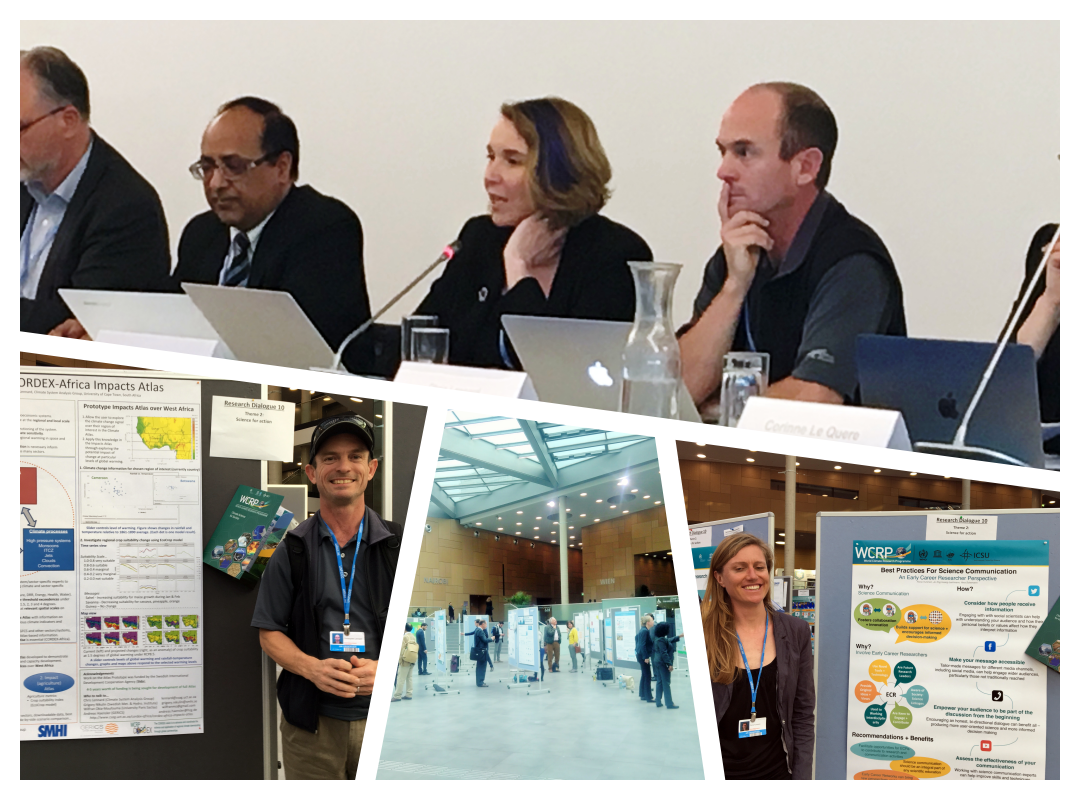
In Brief: Amanda Lynch, vice-chair of the WCRP Joint Scientific Committee (JSC), gave a keynote presentation "Science for Understanding, Science for Impact” at the 10th Research Dialogue of the Subsidiary Body for Scientific and Technological Advice (SBSTA), United Nations Framework Convention on Climate Change (UNFCCC), held in Bonn on Thursday, 3 May 2018. The WCRP Community also presented five posters, informing SBSTA of relevant research activities and emerging science issues.
The Subsidiary Body for Scientific and Technological Advice (SBSTA) of the United Nations Framework Convention on Climate Change (UNFCCC) met for its 48th session in Bonn, Germany, from 30 April to 10 May 2018. A dedicated Research Dialogue has been held during SBSTA for several years with much success, and serves to inform SBSTA of relevant research activities by the science community. During this year's Research Dialogue, WCRP contributions were centered on the following two themes:
- "Science for understanding - update on research and modelling on human settlements, oceans and land and their importance for the implementation of the Paris Agreement” as well as;
- “Science for action - strengthening the link between the research community and action to meet the goals of the Paris Agreement”
A keynote talk by Professor Amanda Lynch, WCRP JSC vice-chair, informed on the latest development of the new WCRP scientific strategy. She emphasized the primary role of WCRP in supporting improvements in the fundamental understanding of climate and climate change, in order to prepare society for unforeseen challenges. WCRP maintains and forges partnerships within and beyond the climate science community, always with a view of connecting science to services for society. Dr Chris Lennard from WCRP’s CORDEX-Africa presented the ongoing development of the CORDEX-Africa Impacts Atlas that will provide climate and sector-specific information to advise toward regional adaptation and mitigation actions.
Five WCRP poster presentations summarized and provided further information for relevant activities of WCRP - including the development of WCRP’s new scientific strategy, regional CORDEX efforts, the CORDEX-Africa Impact Atlas, urban climate information required for decision making and policies at all scales (jointly with GCOS and IPCC), as well as early career scientists’ perspectives on science communication.
This year’s Research Dialogue enjoyed rich discussions on key climate science topics through three keynote presentations, two panel discussions and around 50 poster presentations. All material, posters and presentations can be found at the web page of the 10th Research Dialogue at SBSTA 48.
The conclusions agreed at the SBSTA closing plenary on Thursday 10 May are available from the UNFCCC's research web page: "... The SBSTA expressed its appreciation to Parties and all participating research programmes and organizations and their representatives for their contributions to the 10th Research Dialogue (RD10). It welcomed the diverse and informative set of posters and presentations at the meeting and the value of the dialogue and the exchange of information... In the conclusions, Parties highlighted a number of issues and gaps which you had identified during RD10 … These conclusions can be used by you to support addressing these issues and closing these gaps…"
WCRP highly values the Research Dialogue as an important and helpful forum to facilitate and enhance exchange between SBSTA and the science community. WCRP's Joint Planning Staff thank all of its community members who directly or indirectly contributed to the WCRP presentations at this year's SBSTA Research Dialogue, and look forward to all subsequent activities.
WCRP Presentations:
Keynote:
World Climate Research Programme: Science for Understanding, Science for Impact, Amanda Lynch (Vice-chair of the WCRP Joint Scientific Committee) and Chris Lennard (CORDEX-Africa)
Posters:
- The Future of Climate Research, by the WCRP Joint Scientific Committee
- The WCRP Coordinated Regional Climate Downscaling Experiments (CORDEX), by the CORDEX Scientific Advisory Team and the CORDEX Project Office
- The CORDEX Africa Impact Atlas, by the CORDEX-Africa Team
- Urban Climate Information for Decision Making in Cities: Local to Global Decisions and Policies, by H. Cleugh, N. Taper, R. Hamdi, J. Raven and B. Lee
- Best Practices for Science Communication: An Early Career Research Perspective, by the YESS Community, the Young Hydrologic Society and the Association of Polar Early Career Scientists (presented by Fiona Tummon)

